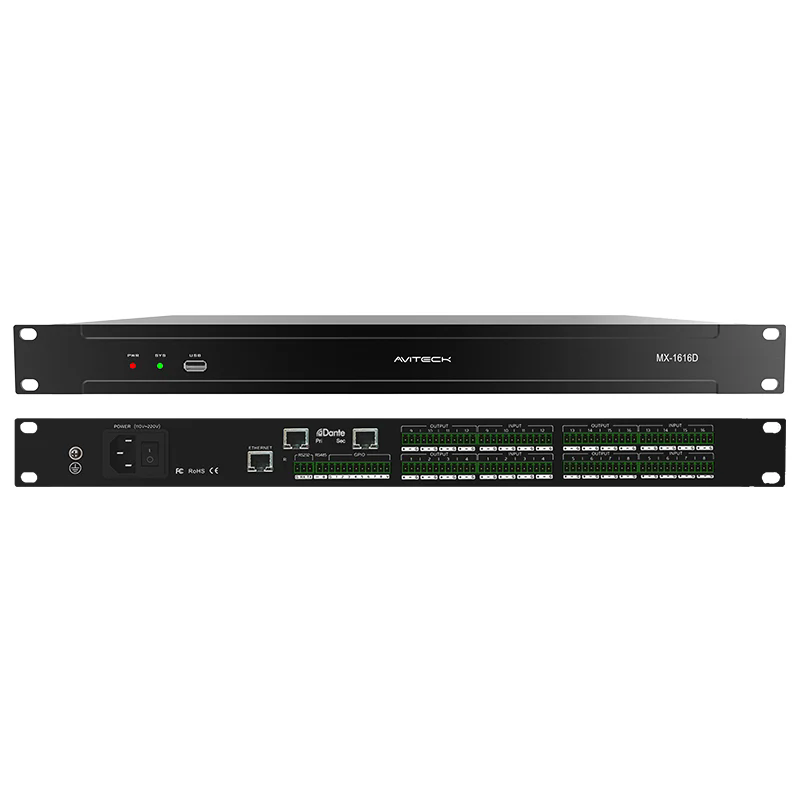What Is a Dante Audio Processor and Why Is It Essential in Modern Audio Systems?
2025-07-09
A Dante audio processor is a device that manages, routes, and processes digital audio signals over a Dante network — a popular audio-over-IP (AoIP) protocol developed by Audinate. Dante audio processors play a crucial role in professional audio setups, enabling flexible, scalable, and high-quality audio distribution across complex systems.
What Does a Dante Audio Processor Do?
Dante audio processors handle various audio processing tasks, such as:
Mixing and Routing:Combining and directing multiple audio inputs to different outputs over the network.
Signal Processing:Applying EQ, compression, delay, and other effects to optimize sound quality.
Network Management:Controlling and monitoring audio streams in real time via Dante Controller software.
Integration:Bridging Dante networks with other audio systems and protocols.

What Are the Key Features of Dante Audio Processors?
High Channel Count:Supports numerous simultaneous audio channels with low latency.
Flexible Routing:Allows dynamic and precise audio signal distribution.
Scalability:Easily expanded by adding more Dante-enabled devices.
Reliability:Uses standard IP networks with redundancy options for fail-safe operation.
Compatibility:Works seamlessly with a wide range of Dante-enabled hardware and software.
User-Friendly Interface:Often includes intuitive software for configuration and control.
Why Use a Dante Audio Processor?
Simplifies Wiring:Replaces traditional bulky analog cabling with standard network infrastructure.
Enhances Audio Quality:Maintains pristine digital audio with minimal latency and jitter.
Increases Flexibility:Enables audio signals to be routed anywhere on the network without physical constraints.
Improves System Management:Centralized control makes troubleshooting and adjustments easier.
Supports Complex Installations:Ideal for large venues, broadcast studios, houses of worship, and corporate AV.
Where Are Dante Audio Processors Commonly Used?
Live Sound and Concert Venues
Broadcast and Recording Studios
Conference and Corporate AV Systems
Theaters and Performing Arts Centers
Houses of Worship
Educational Institutions
How to Choose the Right Dante Audio Processor?
Consider these factors:
1. Channel Capacity:Match the processor’s input/output channel count to your system needs.
2. Processing Features:Look for built-in DSP options like EQ, dynamics, and delay.
3. Network Compatibility:Ensure it supports your existing network infrastructure and redundancy protocols.
4. Control Software:User-friendly and feature-rich software simplifies management.
5. Expandability:Ability to integrate with other Dante devices and grow with your system.
Conclusion
A Dante audio processor is a powerful and flexible solution for managing digital audio over IP networks. Its ability to handle complex routing and processing tasks with ease makes it indispensable in modern professional audio systems.


